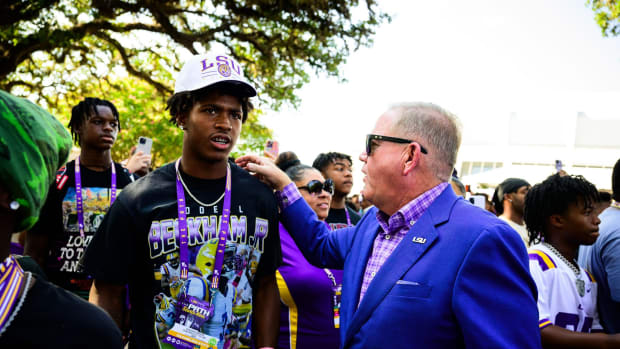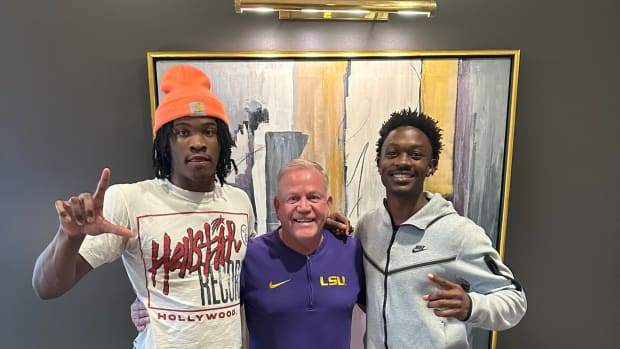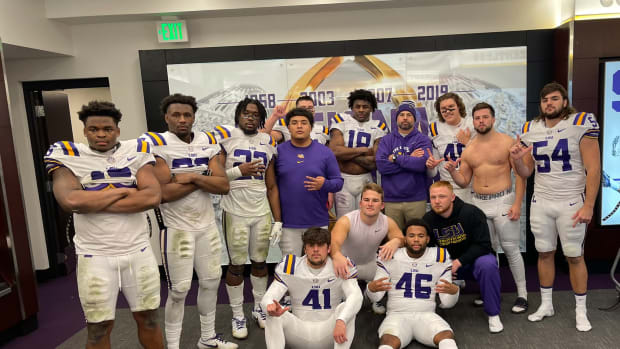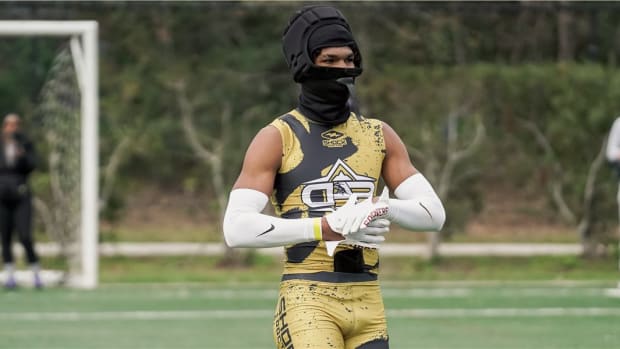LSU Coach Ed Orgeron Responds to Gloria Scott Testimony Involving Derrius Guice

On Friday, Gloria Scott, one of the victims in the Husch Blackwell report against LSU's mishandling of sexual assault, presented her side of the story of the assault involving her and former running back Derrius Guice.
As part of her testimony to state lawmakers, Scott said that LSU coach Ed Orgeron spoke with her following the incident and asked her to forgive Guice for what he'd done. On Tuesday morning, Orgeron responded to the testimony presented by Scott on Off the Bench, saying he truthfully doesn't remember having that conversation.
"First of all, I was deeply uspet when I watched the video of Ms. Scott's testimony. It was the first time I'd heard of all the horrible details of her encounter with Derrius. I am sickened by what she went through. Heartborken. No person, woman, mother or grandmother should ever be addressed in such a disgusting manner. It is 100% unacceptable. I'm devastated that it happened to her. I want Ms. Scott, her family and others to know that.
"I completely cooperated with the Husch Blackwell investigation and I will continue to cooperate with LSU's internal investigation. As I told them, I truthfully do not remember speaking with Ms. Scott three years ago. But I do know Ms. Scott needs to be heard and admired for her courage. I have been, and will continue to be committed to a culture of integrity and compliance. Out of respect to Ms. Scott, all survivors and the integrity of the investigation, I have to further questions of this nature to the university. I hope this helps."
Scott, who works part time at the Mercedes Benz Superdome, testified that Guice made vulgar comments to her while working at the Louisiana High School Championships in December of 2017.
“I like to [expletive] women like you, you older women, because y'all know y'all like us young men to [expletive] y'all,” Scott says Guice told her. “And, you know you want this body.”
She recalled during the alleged conversation with Orgeron, that he asked her to "forgive" Guice for what he'd done and that he was a "troubled child."
In the Husch Blackwell report, Orgeron told investigators that he never had “any direct communication with the alleged victim.”






